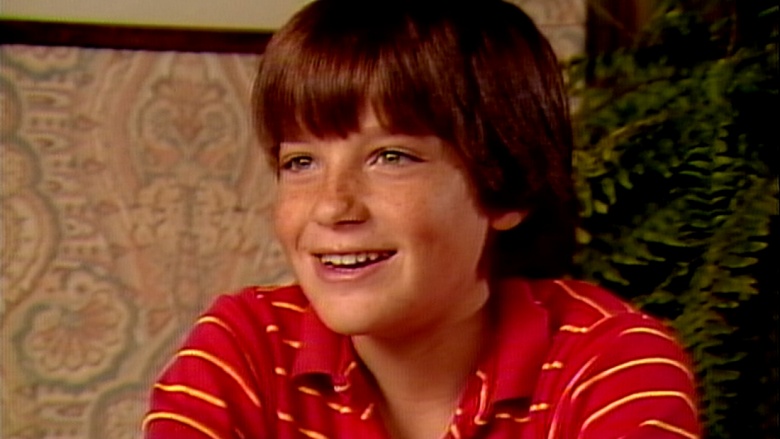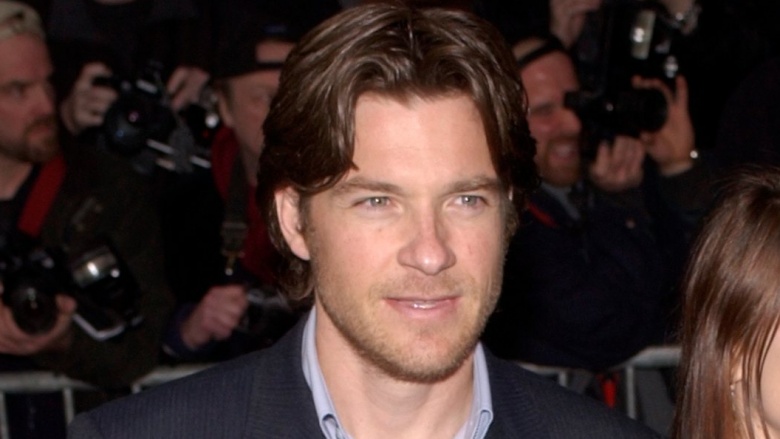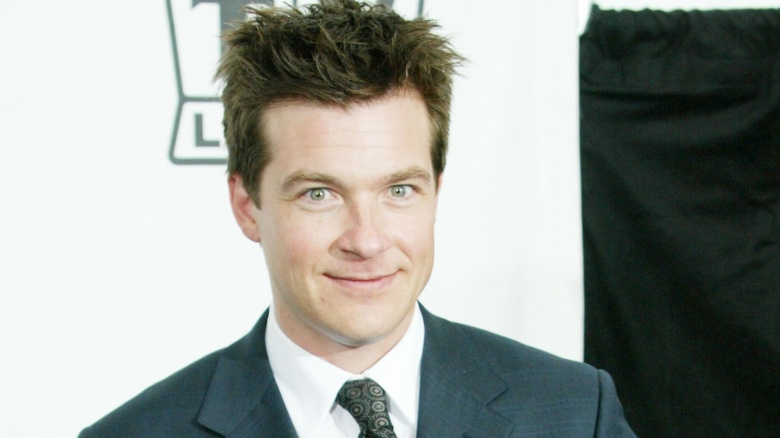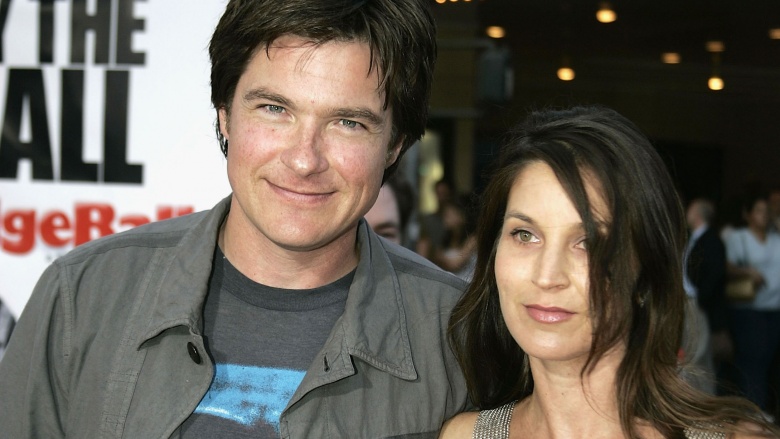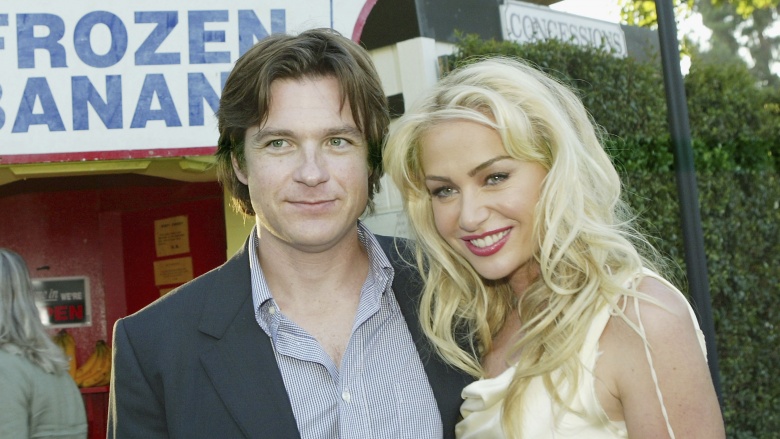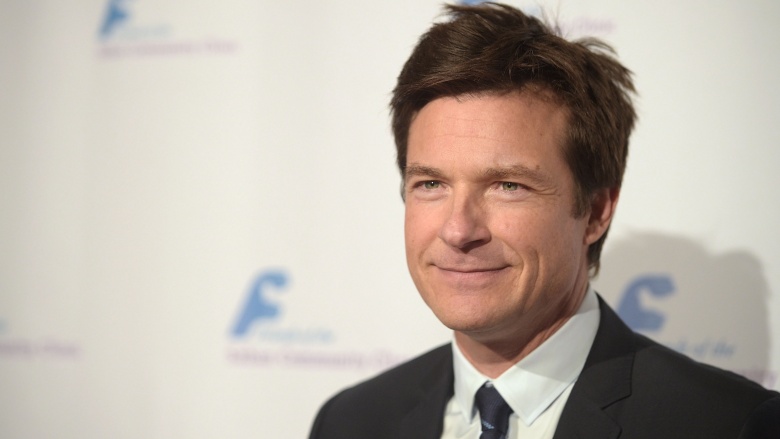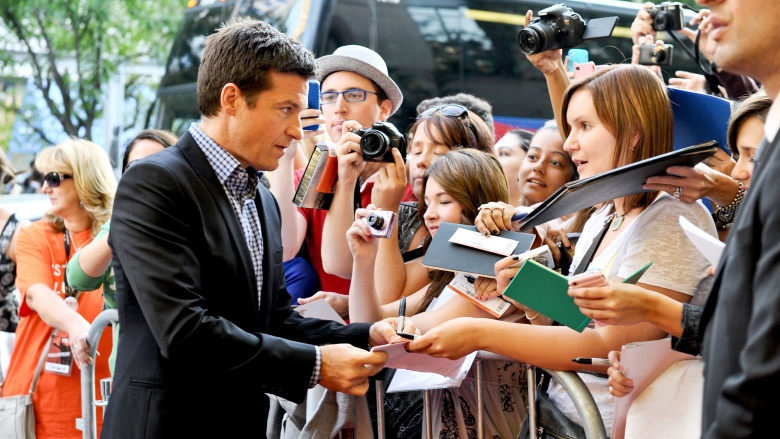How Jason Bateman Completely Turned His Life Around
Jason Bateman's career has since made a 180. The actor, who got his start starring in a Golden Grahams cereal commercial when he was barely in double digits, was a young Hollywood sensation in the late '80s, but his opportunities dried up as he sunk into alcohol and drug abuse. Arrested Development offered him a second chance in 2003, and Bateman has used that platform to reemerge and excel in the biz. Let's take a closer look at how he turned it all around?
His fun times were fast and furious
Bateman had a lot of TV hits in his younger years, including stints on Little House on the Prairie and Silver Spoons, and he shared that showbiz success with his sister, Justine Bateman, who also starred on the small screen in Family Ties. But all that unchecked fame and fortune at such a young age threatened to destroy Bateman's personal and professional life. As he told The Guardian in 2007, "I did all the things a guy in his 20s would do. I was out there drinking and doing drugs and trying to bang as many girls as I possibly could. I was living as if my parents were out of town and had left me the house and the car and a bunch of money and I didn't know when they were coming home."
He suffered an identity crisis in his twenties
As his career began to slow, Bateman said he struggled with his identity between the ages of 20 and 30, telling Yahoo, "You go into these auditions and you want to kind of posture like, 'I'm the guy,' and they sort of make you wait in the lobby for 20 minutes. There's a big, big adjustment for someone who was naive about the ups and downs of the business."
He told Details magazine that he'd become so accustomed to receiving acting opportunities from such a young age that he wasn't prepared for what would come when the jobs didn't roll in. "I had anxiety about making sure the rest of my life wasn't anticlimactic," he said. "Starting at age 10, my personality and my identity all stemmed from employment. I had a set to be at. I was a certain way with the cameraman, a certain way with the makeup lady—a normal, routine environment. When that went away and I didn't have that infrastructure, I had to start over."
Bateman also suffered from depression, but told GQ in 2013 that he felt a disconnect between his mental health and his substance abuse issues. "I sort of relegated my depression to my frustrations in work, but my fun was in just being me and living my life," he said. "I really tried to keep those things separate. I wasn't partying to mask pain. I was partying in a celebratory way as opposed to, 'Oh God, I'm so depressed, so now I want to drink and party.' I don't know how valid that sounds or how valid that is, but it is the way it felt at the time, at least, and still does in retrospect."
He began to run out of money
Another consequence of Bateman being handed so much cash and fame so early in life: he wasn't exactly careful about financial planning. In fact, Bateman was quick to foot the bills for himself and his friends to go on vacations together, and, once the work stopped coming, his funds soon fizzled. "You know you're just about broke when your business manager turns you loose," he told Yahoo.
According to Details, Bateman considered taking the money remaining from his early success and traying to start over in a new industry, such as the restaurant business. Then, in 2001, he received a call in 2001 about a little project called Arrested Development.
He decided to make a change to his personal life
Bateman knew his wife, Amanda Anka, for years before they embarked on a romantic relationship, and she was reportedly the person who convinced him to give up the games. According to Details, Anka had lost previous boyfriends to drug overdoses, so she gave Bateman an ultimatum and departed on a Christmas vacation to Mexico without him. It was then that he decided to seek help with Alcoholics Anonymous.
"Booze was what would make me want to stay out all night and do some blow or smoke a joint or whatever, so shutting that off was key," he told Details. "It's like ketchup and French fries—I don't want one without the other. So that's the moment: Do you want to continue being great at being in your twenties, or do you want to step up and graduate into adulthood?"
Bateman largely credits his wife for inspiring his transition to sobriety and turning him "into a decent human being," and Anka gives her husband credit for making that change. "I can't get him off the couch to go to a party," she told GQ. "This is a guy who wants to go get frozen yogurt and come home."
Arrested Development gave him a second chance
After Bateman sobered up, he got the chance to star in the pilot for Arrested Development. Though he couldn't predict the lasting impact the show would have on his career, he recognizes now that it was a pivotal turning point in his professional life. "I got very, very lucky when Arrested Development came along," he told OK! magazine (via Digital Spy). "That series saved my career—it gave me back my credibility I used to have when I was much younger and before people gave up on me as a party guy in Hollywood."
Even though the show wasn't a huge commercial success, it was absolutely adored by industry giants who appreciated Bateman's performance as the woe-begotten Michael Bluth. "It was seen and loved by those who hand out jobs in this business," Bateman told The Telegraph. He soon scored comedic supporting roles in movies like Starsky & Hutch (2004) and Dodgeball: A True Underdog Story (2004) and slowly watched his marquee status begin to rise. In 2007, he claimed a central role in the critical darling Juno (2007). After that, Bateman began to hit his stride with well-received films such as Forgetting Sarah Marshall (2008), Up in the Air (2009), and The Invention of Lying (2009). He went on to land huge roles in Couples Retreat (2009), The Switch (2010), Horrible Bosses (2011), and The Change-Up (2011).
He avoided becoming typecast
Although Bateman's revived career often cast him as a sensitive, lovable, and earnest fellow, he made some key acting choices to avoid being considered one-note. "I don't blame the industry for asking me to continue to play parts that they've seen me play before," he told The Telegraph. "Since Arrested Development, it's been a very similar role, so it's kind of the chicken or the egg. I'm not going to be asked to do something different until they see me do it, but they're not going to let me do it until they see me do it."
To combat that problem, Bateman spearheaded his own reinvention by way of his 2013 directorial debut, Bad Words, in which he played upon his gift for darker comedic riffs and insult comedy. The project was a drastic departure from the fun-loving, accidental hero type he'd worked so well in Arrested Development, and Bateman soon began to score more nuanced roles. In 2014's This Is Where I Leave You, he flexed his dramatic chops portraying a cuckolded character who embarks on a journey to discover his own interests outside of being a husband and assistant, and in 2015's The Gift, he plays a complex character whose own sordid past comes back to haunt him by way of a revenge scheme.
He gained a healthy dose of self-deprecation
Having experienced the doldrums first-hand, Bateman's second wind has been marked by appreciation and kindness. He told GQ that when he was still feeling a bit down in the dumps, he watched an interview with fellow child actor-turned-Hollywood-icon Ron Howard (who appeared on Arrested Development as himself) and felt inspired to change his attitude toward others.
"I remember watching [Howard] be that famous, kind, affable, engaging, almost eager persona, and I remember thinking, 'Boy,' you know, 'there's no way anybody would ever misinterpret that kindness for weakness,'" Bateman said. "And I thought to myself, 'if I'm ever lucky enough to find some relevance again and some access and some success, that's going to be the best part of it, is that I'm going to be as nice as I want to be and not nervous that that's going to be misinterpreted for desperate."
Bateman's notorious niceness has become a feather in his cap and served him well as he navigates his newfound A-list status and continues to grow.


